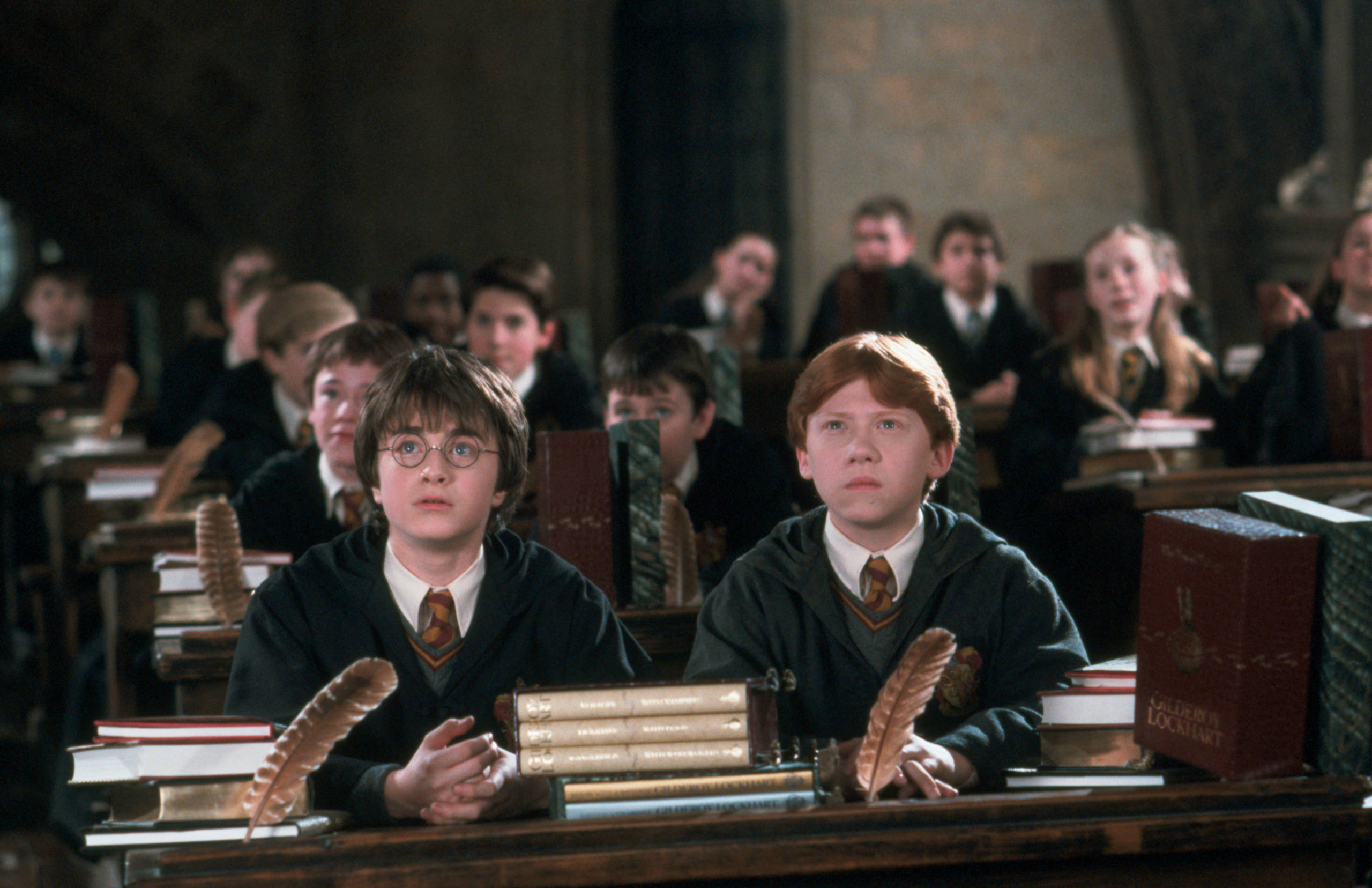Whether it be Peeves’s perfect rhyme ‘Potter, you rotter’ or the sublime couplets of the Triwizard Tournament sphinx, we can find poetry in many unexpected places in the wizarding world. So, we’ve dusted off our old English Literature degrees and appraised a couple of these magical verses from a technical standpoint. Well, kind of. Who is the best poet of the wizarding world, then? Weirdly, Severus Snape is pretty up there…
Snape’s potions poem
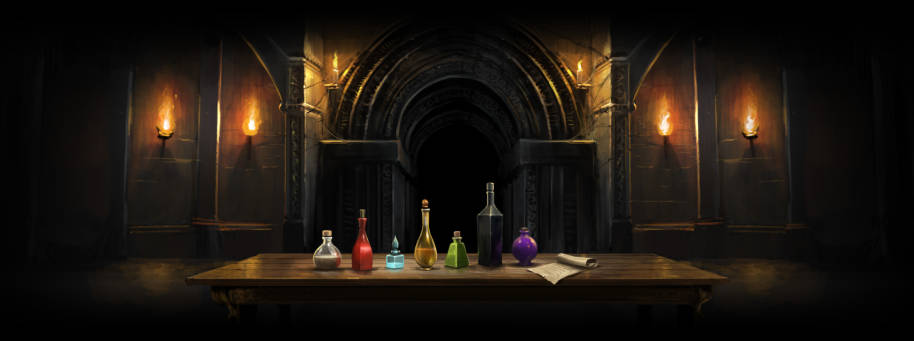
In Philosopher’s Stone, many of the Hogwarts professors contributed to the protection of the Stone in their own unique ways – all somehow connected to their individual magical skills. Snape’s obstacle was, of course, connected to teaching Potions, with a solution that would help Harry to the next room hidden among a line of bottles containing something far more sinister. The bottles came with a poetic riddle, and we must say, we were rather impressed with it. Here it is…
Danger lies before you, while safety lies behind,
Two of us will help you, whichever you would find,
One among us seven will let you move ahead,
Another will transport the drinker back instead,
Two among our number hold only nettle wine,
Three of us are killers, waiting hidden in line.
Choose, unless you wish to stay here for evermore,
To help you in your choice, we give you these clues four:
First, however slyly the poison tries to hide
You will always find some on nettle wine’s left side;
Second, different are those who stand at either end,
But if you would move onwards, neither is your friend;
Third, as you see clearly, all are different size,
Neither dwarf nor giant holds death in their insides;
Fourth, the second left and the second on the right
Are twins once you taste them, though different at first sight.
Harry Potter and the Philosopher’s Stone
The riddle, composed in rhyming couplets, commands a great sense of rhythm – which we definitely weren’t expecting from surly ol’ Snape, if he did indeed write it. Of course, the poem holds the purpose of being a puzzle, but beyond that, there is some real skill in the work.
Describing the bottles as ‘killers’, ‘twins’, ‘dwarves’ and ‘giants’ is a clever use of personification, a classic literary technique used by the likes of Shakespeare, to give inanimate objects life. Personifying these bottles shows Snape’s intense love of potion-making, and gives his riddle the magic touch. Maybe he should’ve called himself the Half-Blood Bard?
The Sphinx’s poem
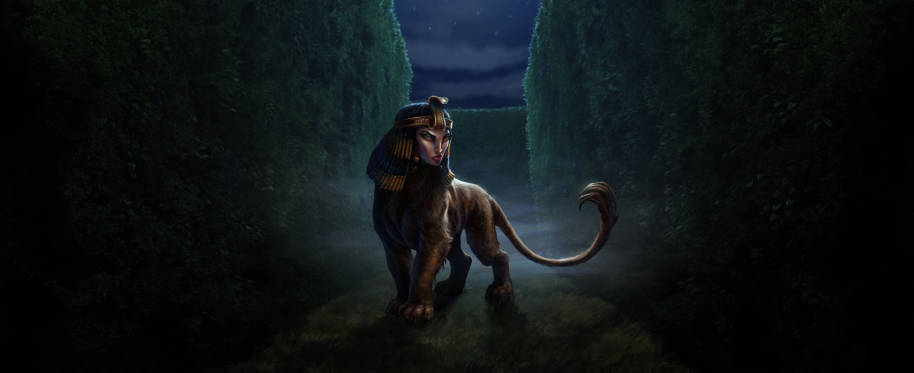
‘First think of the person who lives in disguise,
Who deals in secrets and tells naught but lies.
Next, tell me what’s always the last thing to mend,
The middle of middle and end of the end?
And finally give me the sound often heard
During the search for a hard-to-find word.
Now string them together, and answer me this,
Which creature would you be unwilling to kiss?’
Harry Potter and the Goblet of Fire
Another verse riddle, this time courtesy of the sphinx that Harry encountered during the Triwizard Tournament. The answer is ‘spy-der’ (spider), by the way.
The poem is once again comprised entirely of couplets, which is a common feature in such a riddle.. Riddles have always employed wordplay and used verse structures since the earliest days of history, particularly in Ancient Greece and Rome. Well, it’s no fun if they don’t rhyme, right?
The Valentine’s poem
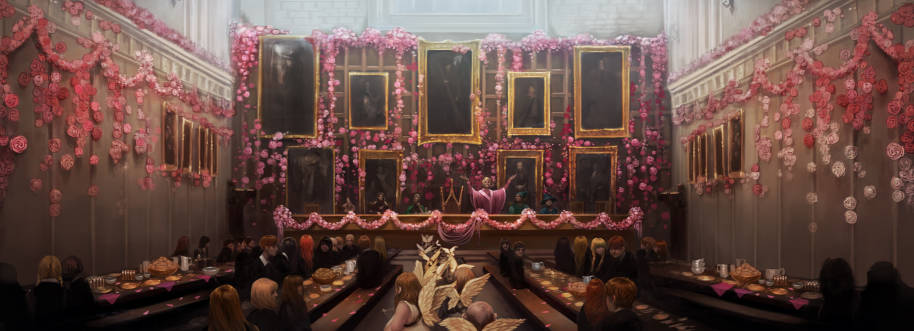
Oh, Ginny. Well, it was probably Ginny. Oh, come on, it was definitely Ginny. We are, of course, talking about the infamous Valentine’s poem that Harry received in his second year. The fresh pickled toad one, yes. Here’s a reminder of it in its entirety…
‘His eyes are as green as a fresh pickled toad,
His hair is as dark as a blackboard.
I wish he was mine, he’s really divine,
The hero who conquered the Dark Lord.’
Harry Potter and the Chamber of Secrets
This simple quatrain (a four-line poem or stanza) may have caused a few red faces when delivered to Harry in the middle of Hogwarts, but considering Ginny was only 11 when she (probably) wrote it, we definitely see a talented writer in this. The use of similes (‘…his hair is as dark as a blackboard’) is a very traditional technique that dates back to the likes of Robert Burns – who wrote lines like ‘O my luve is like a red, red rose.’
The poem uses a simple ABAB rhyming scheme, the sort of scheme you see in more romantic poetry, such as sonnets. Rhyming the first line with the third line tends to give poems a more lingering effect, and we imagine Ginny wanted this to be pretty romantic. Alas, maybe comparing Harry’s eyes to a toad wasn’t the most flattering choice.
The Gringotts poem
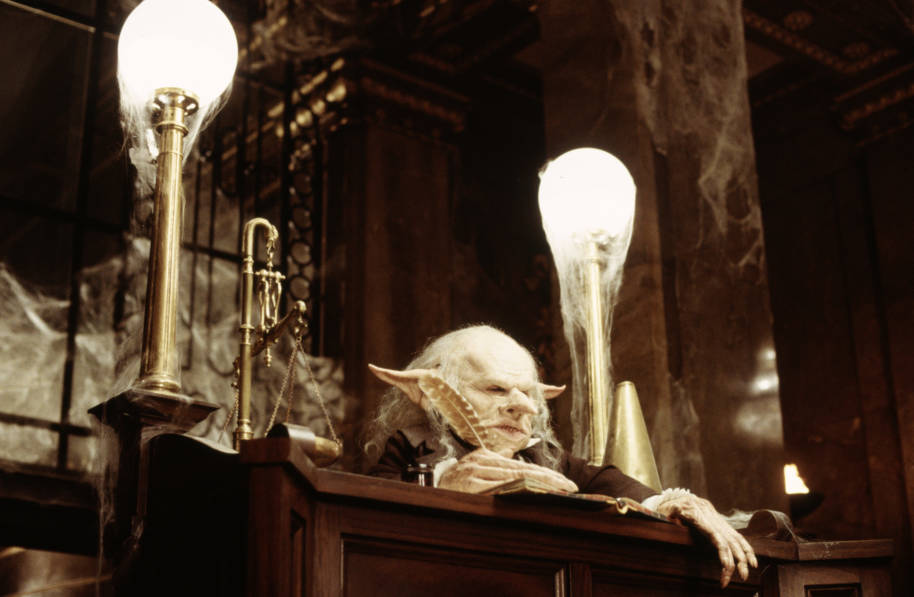
Enter, stranger, but take heed
Of what awaits the sin of greed,
For those who take, but do not earn,
Must pay most dearly in their turn,
So if you seek beneath our floors
A treasure that was never yours
Thief, you have been warned, beware
Of finding more than treasure there.
Harry Potter and the Philosopher’s Stone
This poem is engraved upon a pair of silver doors within Gringotts bank, most likely composed by the goblins that have always guarded the vaults. Addressed to potential thieves of Gringotts, the poem warns those who enter that they will ‘pay most dearly’ if they take a fancy to anything that doesn’t belong to them in a couplet structure.
All in all, this is clearly a poem designed to just scare the living daylights out of us, so well done, guys.
Peeves’s songs
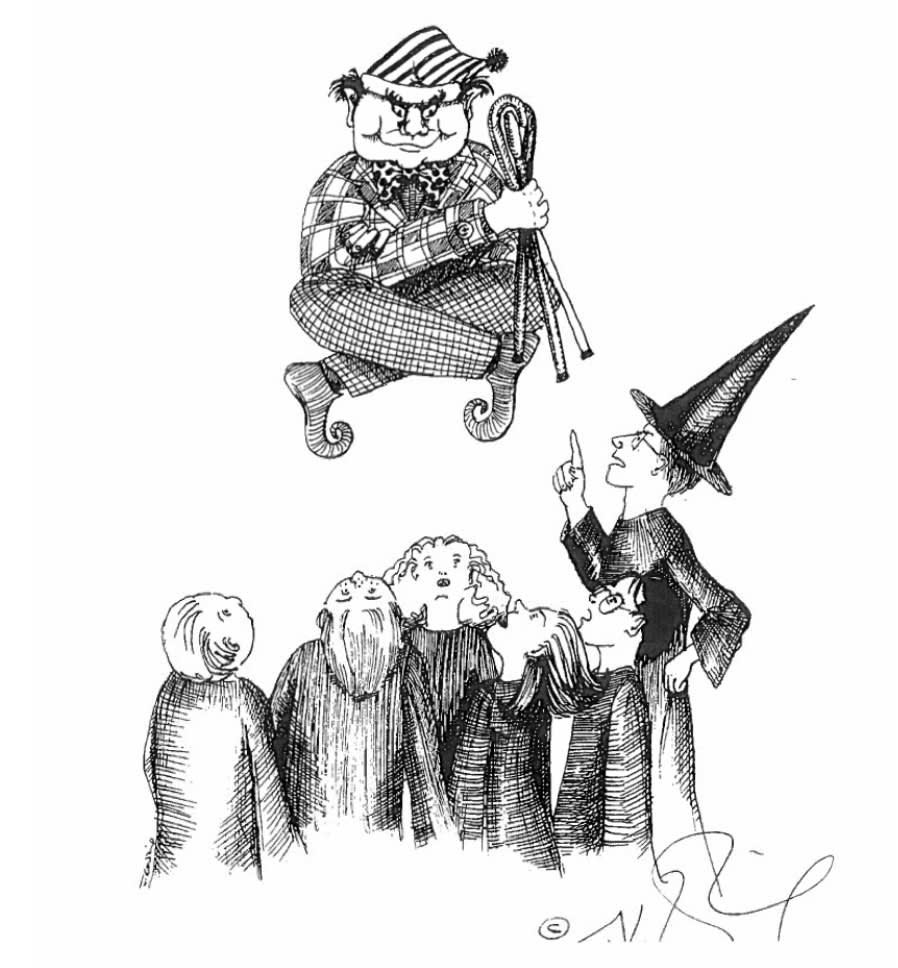
It’s hard to say if Peeve’s artistic creations were songs, poems, freestyle raps or… just Peeves being Peeves, but nonetheless they rhyme, so who are we to deny Peeves an appraisal of his work? Let’s look at one of his classics…
‘We did it, we bashed them, wee Potter’s the One,
And Voldy’s gone mouldy, so now let’s have fun!’
Harry Potter and the Deathly Hallows
‘Composed’ at the end of the Battle of Hogwarts, this is one of the many little rhymes Peeves sporadically tormented the students with – although we must admit that this one was pretty welcome.
But we’ve got to hand it to him – not only did he treat us to a humorous couplet at the end of a devastating sequence of events, but he also delivered a bit of cheeky internal rhyme – with the use of ‘Voldy’s gone mouldy’. Alright, so Peeves wasn’t the most eloquent poet of the wizarding world, but we certainly could have used a bit of comedy after the Battle of Hogwarts.
Ron gave us a nice little assessment of Peeves’s poetry himself: ‘Really gives a feeling for the scope and tragedy of the thing, doesn’t it?’

